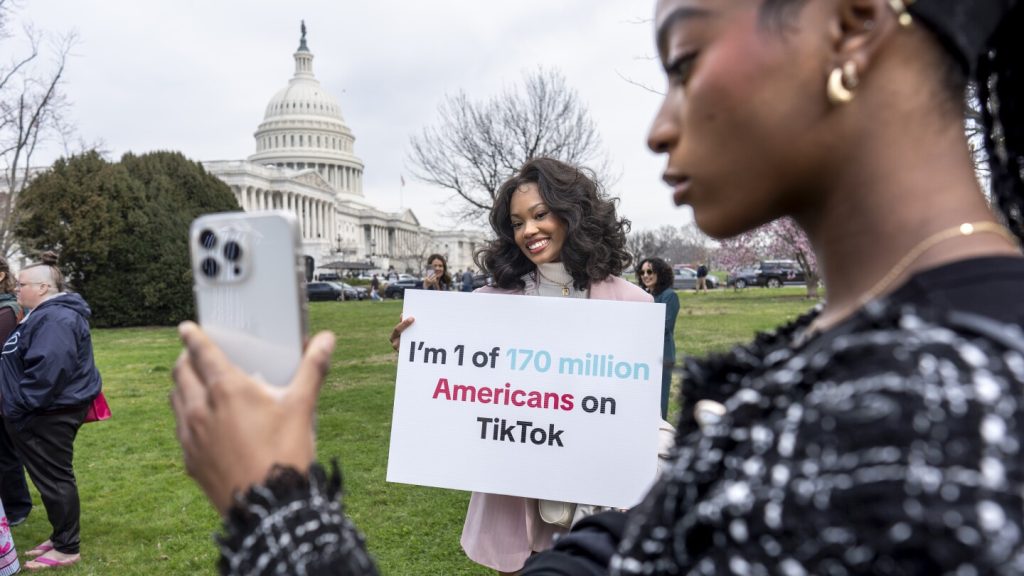A recent surge of threatening calls and messages directed at lawmakers, particularly those who support legislation to ban popular social media app TikTok, has raised concerns about the influence of social media platforms on young people. The House recently passed a bill that would ban TikTok unless its China-based owner sells its stake, prompting TikTok to mobilize its users to call their representatives in protest. The issue has highlighted the industry’s extensive lobbying efforts to avoid new regulations, despite longstanding concerns about privacy, online threats, and content liability.
While the House bill overwhelmingly passed, it faces challenges in the Senate due to disagreements over the best approach to safeguarding user data and preventing Chinese influence through technology. Senate Commerce Committee Chairwoman Maria Cantwell has called for hearings and potential revisions to the bill, emphasizing the importance of getting the legislation right. However, proponents like Senate Intelligence Committee Chairman Mark Warner view the bill as a crucial step in regulating the tech industry, especially in light of the threatening calls from young people urging action against TikTok.
The debate over TikTok has evolved from calls for an outright ban to legislation that would require the app’s owner, ByteDance Ltd., to sell its stake. Vice President Kamala Harris has acknowledged TikTok’s popularity and economic importance, signaling that the administration aims to address ownership concerns rather than banning the app entirely. Despite divisions among Republicans on the issue, some lawmakers are pushing for greater transparency on national security issues related to TikTok and China’s ownership, emphasizing the importance of protecting users, especially children, online.
Efforts to regulate tech companies on issues such as online privacy, content liability, and artificial intelligence have faced setbacks in Congress, reflecting the challenges in reaching consensus on complex tech-related issues. While Senate Majority Leader Chuck Schumer has been relatively quiet on the TikTok bill, lawmakers like Sen. Mike Rounds remain optimistic about passing legislation to address data collection and misinformation on the app. Rounds and Schumer continue to collaborate on regulating the tech industry, with a focus on areas of broad consensus that could lead to meaningful legislation in the future.
Despite the obstacles facing the TikTok bill in the Senate, lawmakers are committed to educating their colleagues on the need for regulation and laying the groundwork for future action. Sen. Thom Tillis emphasizes the importance of addressing concerns around social media platforms and ensuring that the industry operates within reasonable boundaries. With ongoing discussions and bipartisan cooperation, there is hope that the Senate will eventually pass legislation to address the challenges posed by tech companies and protect the interests of users, especially in the realm of social media and online communication.















